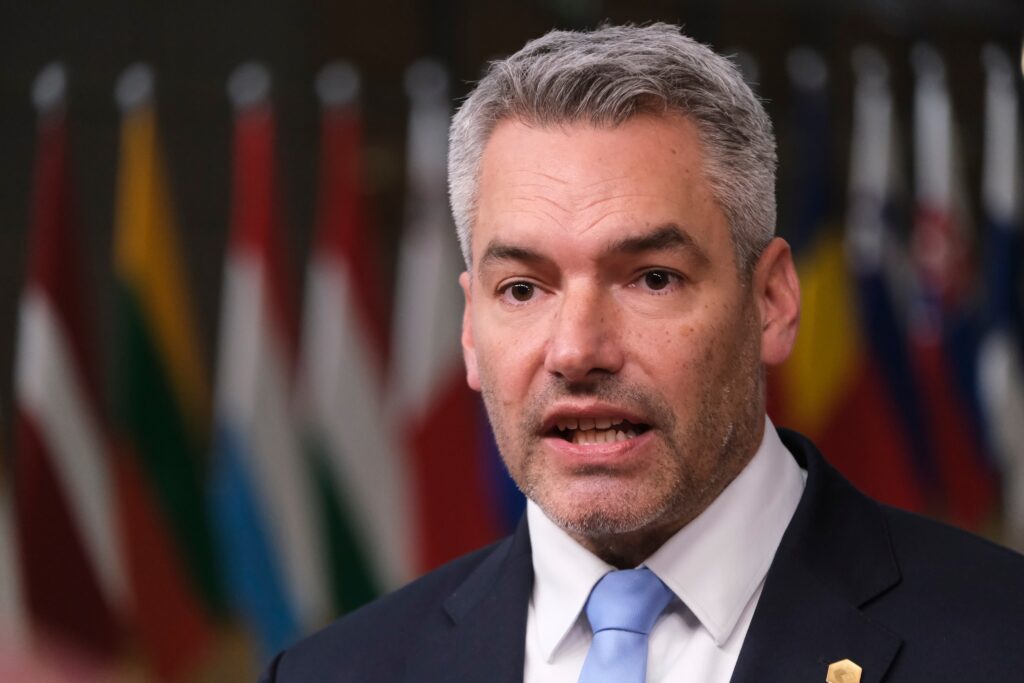Austrian Chancellor Karl Nehammer and Swedish Prime Minister Ulf Kristersson recently met in Vienna to mark 30 years of EU membership for Austria, Sweden, and Finland. The leaders used the occasion to call for stronger EU action on irregular migration, focusing on border security and quicker deportations for rejected asylum seekers.
Nehammer praised Sweden as a key ally in tackling illegal migration. He highlighted Prime Minister Kristersson’s leadership in keeping migration at the forefront of the EU’s agenda. Kristersson proposed a comprehensive EU plan by spring to establish “return hubs” aimed at expediting the removal of migrants who do not qualify for asylum.
“We need to stop saying things are complicated and start solving these issues,” Kristersson said. He also praised Austria for aligning with Sweden’s approach to migration control.
Reflecting on 30 Years of EU Membership
The meeting also celebrated the 30th anniversary of Austria, Sweden, and Finland joining the European Union in 1995. This historic enlargement brought the EU’s member states to 15, marking a significant shift in Europe’s political landscape. These countries, which had maintained neutrality during the Cold War, joined the EU to access the single market and influence broader European decisions.
Accession talks were challenging, with issues like agriculture, regional aid, and fishing quotas at the center of debate. Despite Euroscepticism in Sweden and Norway, these countries saw EU membership as a step toward economic growth.
Referendums and EU Membership
In Austria, Sweden, Finland, and Norway, referendums were key in deciding EU membership. Austria and Finland strongly favored joining, while Sweden narrowly approved it. Norway, however, voted against EU membership, preferring to remain outside the Union and retain its neutral status.
The 1995 enlargement marked a turning point for the EU, bringing in these formerly neutral nations and setting the stage for future growth. Their decision to join aligned them with the EU’s broader goals and deepened the Union’s reach across Europe.
Migration Challenges and EU’s Next Steps
As the EU celebrates its 30th anniversary with Austria, Sweden, and Finland, the focus is now on urgent migration issues. Leaders like Nehammer and Kristersson are calling for stronger border control measures and faster deportations of migrants whose asylum claims are rejected. Their call for return hubs reflects a shift toward a more efficient, systematic approach to managing migration.
This anniversary also reminds us of the EU’s growing influence. As the Union faces complex challenges like irregular migration, its response will continue to shape Europe’s future.
